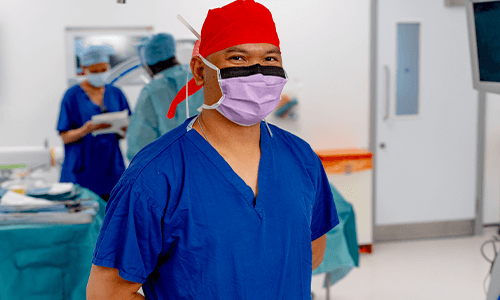Oaks Hospital Specialists
-
Professor Thanjakumar Arulampalam
Prof Tan Arulampalam is a Consultant General Surgeon in Essex, specialising in hernia surgery, gall bladder surgery, colo-proctology, and gastrointestinal endoscopy.
Read more -

Miss Sharmila Gupta
Miss Sharmila Gupta is a Consultant General Surgeon at Oaks Hospital specialising in hernia, gall bladder surgery, coloproctology and GI endoscopy.
Read more -
-
Mr Adam Howard
Mr Adam Howard is a Consultant General & Vascular Surgeon since 2007 who specialising in Vascular Surgery (varicose veins excessive sweating, aortic aneurysms, carotid surgery, leg swelling, ulcers and diabetic foot problems) and minor General Surgery (herniae, lumps and bumps) at Oaks Hospital, Colchester, Essex
Read more -
Mr Abhilash Paily
Mr Abhilash Paily is a Consultant General and Colorectal Treatment surgeon in Colchester, Essex
Read more -
Mr Matthew Tutton
Matthew Tutton has more than 15 years experience as a Consultant General and Colorectal Surgeon. He is a specialist in robotic bowel surgery, laparoscopic (keyhole) surgery and endoscopy. He is the Divisional Director for Surgery at Colchester and Ipswich Hospitals.
Read more -

Mr Subash Vasudevan
Mr Vasudevan is a Consultant General & Colorectal Surgeon at Essex, Oaks Hospital
Read more -

Mr Greg Wynn
Mr Greg Wynn is a Consultant General Surgeon in Essex, he specialises in gallstones, hernias, endoscopy, colorectal cancer, inflammatory bowel disease, diverticular disease, IBS, haemorrhoids and fistulas.
Read more


